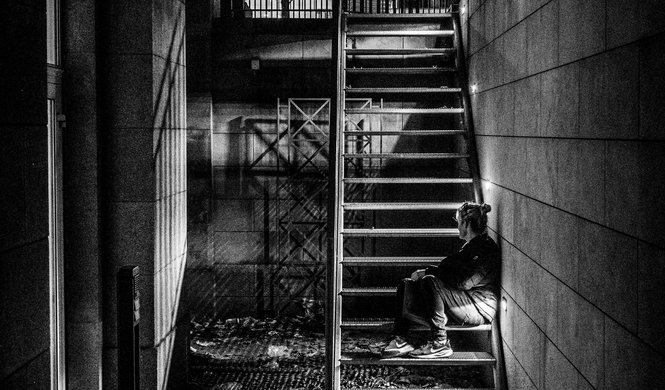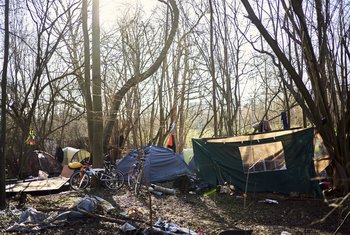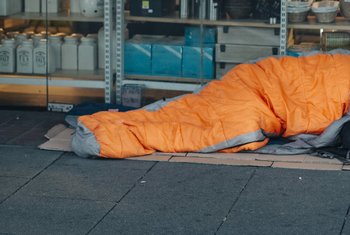The invisible - homelessness among women

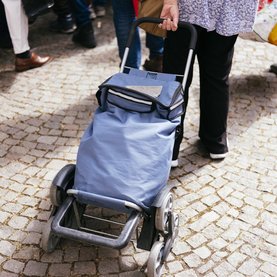
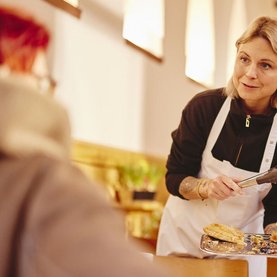
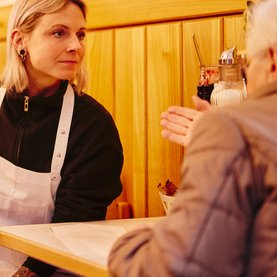
Around a fifth of the up to 180 guests at the Franziskustreff every day are women. Being homeless is particularly stressful and dangerous for women. Many homeless women live in conditions of dependency to avoid ending up on the street. Many hide their situation out of shame. They make ends meet by couchsurfing with friends, relatives and acquaintances. Female homelessness is more hidden. Women are less visible in public spaces than men because they behave differently.
What does it mean for women not to have a home?
Our social worker also finds out in her counselling sessions what makes life without a home particularly difficult for women. She accompanies all guests who ask for help. She supports them on their way back into society. Step by step forwards. At their own pace. Within the scope of their individual possibilities. In the best case scenario, into a new life with a safe home.
In their distress, women often enter into forced partnerships to escape the streets. Or they live in unacceptable housing conditions. Many of them persevere in violent relationships or enter into new relationships in order to get a place to sleep.
Homeless women not only lack safe accommodation. They live in poverty and suffer from health problems. Addiction and psychological trauma are common side effects. "Neither addiction support centres nor psychiatric services currently meet the support needs of these women. There are only a few places with women-specific facilities for homeless people and there is nowhere near enough capacity.
Mixed-gender communal accommodation is an unacceptable obstacle, especially for homeless women affected by violence," also states the Bundesarbeitsgemeinschaft Wohnungslosenhilfe e. V. (Federal Working Group on Assistance for the Homeless). (Source: Women in housing need - bagw.de)

„Happiness for me is that I have a choice in what I do. That I am free to do so. But happiness for me is also being able to go to bed at night.“Janita Marja Juvonen
"I would have liked people to recognise me as a person," she says, reflecting on her difficult time on the streets.
Homelessness is still part of her life. But it no longer defines it. Today, Janita shares her story. She shows interested people the world from the perspective of homeless women. With her first book: "The others - the harsh reality of homelessness". She visits schools to impart knowledge. Gives homelessness a face, with guided tours of "her" places. With her work, she gives a greater voice to those who are heard too little or not at all. Those who are less visible: homeless women.
Janita visited the Franziskustreff and spoke to us about how she became homeless. What she needed and wished for back then. And what ultimately meant the turning point for her. In the film, she talks about her steps forward, back into society. And about the importance of unconditional humanity and charity for people in need.
Thank you, dear Janita! For your openness and your tireless commitment for and together with homeless people.


